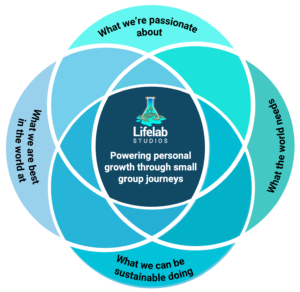Common Core: A Platform for Equity & Innovation

It’s exciting to see 45 states voluntarily adopting common college and career ready expectations for students–it makes the U.S globally competitive, is embraced by teachers, and is unleashing an avalanche of innovation.
The new Common Core State Standards give all students a shot at college and family wage jobs. They are a big improvement over the hodgepodge of expectations developed state by state.
Unlike other efforts, the Common Core goes to the heart of what educators do every day, and the theme of “fewer, deeper, clearer” expectations really strikes a chord with master teachers. This is why they got into the profession.
We are facing a real challenge, however. For a number of reasons, the profession of teaching isn’t a very exciting one to enter into right now. The pay isn’t great, there’s a variety of new and unfamiliar accountability and evaluation policies coming on line, and with state budgets still wobbling, job security (for new teachers into particular) is no longer a guarantee. We want to raise the bar to entering teaching, but why would anyone talented go into the field?
Answer: impact, innovation, and entrepreneurship. Imagine if we empower teachers to truly be “design thinkers” who continually innovate in their instructional practice. We trust them with the freedom they crave to experiment and ideate around the best way to impart learning to the children in their care. And we offer the potential for translating success at scale.
The Common Core, in conjunction with digital resources, is the key to all of this. By creating clear expectations of what students should know, teachers know what they are aiming for – and can design accordingly. The lessons, tools, resources they develop can – for the first time – be shared with other educators across 45 states. It is a satisfying experience to impart knowledge to 30 children in your direct care. Imagine the satisfaction from helping 30 million.
Does this sound far fetched? Look at LearnZillion. A principal sees a need that a digital tool can address. He prototypes the tool within his school, then spins out to create a new business to bring this tool to teachers across the country. To build and refine the tool, LearnZillion brings together hundreds of teachers, selected from thousands of applicants, to work together – creating a truly collaborative community of professionals working together on something they love. States like Connecticut have gotten wind of this now want to do the same thing for their teachers. LearnZillion is a for-profit business, which just raised $7 million, and is growing rapidly.
Curriculm Associates is 40 year old company that shifted its entire focus to building great tools for the Common Core. In just three years they developed a system that can quickly diagnose a students learning level in reading and math and provide personalized instruction. And, while they have created tremendous value, the owner is donating most of the stock to a charitable trust.
Or consider MasteryConnect, a Salt Lake startup launched by teachers and technologist. They help over 700,00 teachers share Common Core classroom assessments. The Michael and Susan Dell Foundation just led a $4 million round of funding. They will not only get a bigger impact than a traditional grant, the foundation will receive a big return on investment.
Foundations, nonprofits, and companies big and small are investing billions in new digital learning materials and tools that–for the first time–can be easily shared across state lines. Many of the smart young people graduating from the nation’s best universities want to work in education. Some join Teach for America, some start education technology companies, some get training from Education Pioneers and go to work in urban districts.
As a new paper illustrates, the new tools create the potential for schools that work better for teachers as well as students. Teachers are working in teams, personalizing student learning using data, and sharing resources and strategies with other teachers–in their school and around the country.
This is what entrepreneurship in education looks like. Do conservatives really want to be the party that stifles improvement and innovation? Does the labor left really want to undermine confidence that Common Core State Standards are here to stay by calling for moratoriums already?
Five years after release there are 775,000 apps for the iPhone. Similarly, the Common Core is giant platform for innovation for American education. The Common Core and the digital learning revolution are breaking down boundaries and improving the teaching profession. Most importantly, the Common Core is the promise of better education to the children of this country.
Parents, teachers, and particularly the education innovation community needs to speak up against the extreme right and left that would happily kill what is the most transformative education policy we’ve undertaken in past 30 years. The rest of the high performing nations in the world have raised their standards, but – at least for now – the US still remains the most innovative country in the world. The Common Core connects innovation to the classroom, to educators, to students and parents.
This blog appeared on Huffington Post without mention of LearnZillion and MasteryConnect which are portfolio companies of Learn Capital where Tom is a partner. Curriculum Associates is an Advocacy Partner of Getting Smart.







Annabelle Howard
I agree with you about the CCSS being an opportunity for innovation, Tom. For example, the CCSS refer to "drama" over 70 times. I take this as a solid invitation to bring theater to the center of the curriculum. I've been working on doing that for years, so I welcome the CCSS
.
I am a creative educator who used classic theater to teach across the curriculum 30 years ago. My work was noted by the New York Times and International Herald Tribune. I created interactive adaptations on paper and a board game to go with each play. My plays sold in all 50 states and 10 other countries. I sold the company to Sundance Publishers in MA, and all rights reverted to me recently :D
Now, I have a grant from the Frances R. Dewing Foundation to bring this work into the digital age. In line with the Common Core, I am creating the first DIGITAL DRAMA FESTIVAL for K-12. We are looking for partners. Can you help?
Replies
Tom Vander Ark
Hi Annabelle, great point. It's critical that we think about Core expectations across the curriculum--write in math, problem solving in drama, reading in math. Send more info on your project, [email protected]